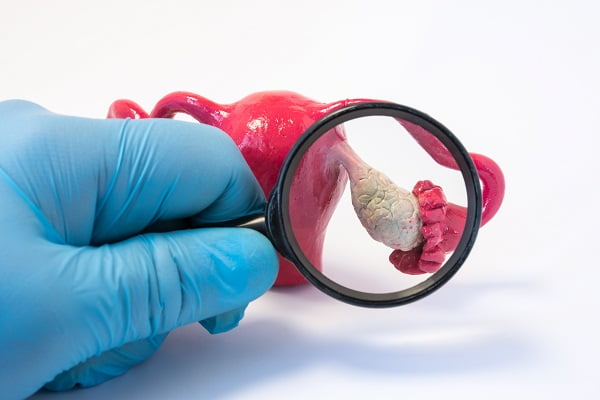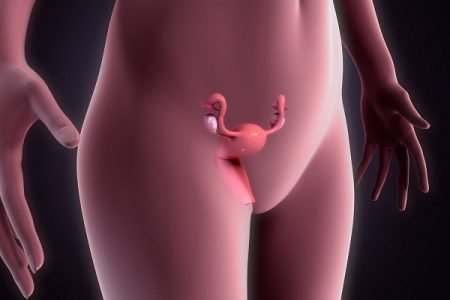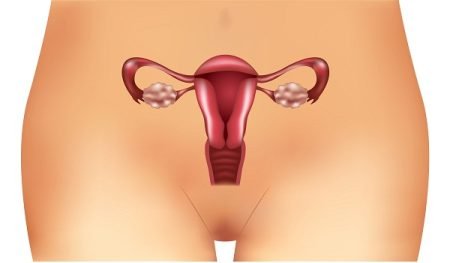How Is Polycystic Ovary Syndrome (PCOS) Diagnosed?
- Updated on: Aug 26, 2024
- 4 min Read
- Published on Oct 3, 2019


There are no definite tests for the diagnosis of PCOS. The doctor starts discussion with the medical history and asking about any other family member having this disease. The doctor may ask questions related to patient’s periods and weight changes.
A physical examination to observe the growth of hair and acne is also done. If a woman is sexually active and taking contraceptive pills, she should discuss this with her doctor. Taking contraceptive pills changes the hormonal levels. This makes it difficult to measure the level of androgen and other hormones in the female. An accurate measurement is required for the diagnosis of PCOS. The doctor may ask the patient to stop the pill for about three months before getting herself tested for PCOS.
Experts suggest that menstrual cycles in adolescents can be irregular for reasons unrelated to PCOS. It is best to wait for two years of irregular periods before assessing whether the reason behind the symptoms is PCOS or not. However, if there are other symptoms like excess hair growth, acne or weight excess, the person should take immediate help.
Diagnosis of PCOS
Following are the criteria on which diagnosis of PCOS is done:
- The ovaries are polycystic (presence of 12 or more follicles in ovary that increase in size)
- Hyperandrogenism (Increased level of male hormone in females)
- Excess hair growth
- Acne
- Irregular menses or lack of periods
- Lack of ovulation, which can be monitored using an Ovulation Calculator.
Tests for diagnosing PCOS
No single test can show that a person haspolycystic ovary syndrome. The doctor may talk to the patient about the medical history and run some tests. Enlisted are the tests that a doctor may suggest for the diagnosis of PCOS:
- Medical history
- Physical examination
- Ultrasound
- Blood tests
- Other Lab tests
- Tests for other conditions
Medical history
The medical history of a patient is an important factor in every disease. Doctor may ask the patient about any changes in menstrual cycle. Any alteration in weight, skin and hair is also observed. The doctor may ask about any difficulty in getting pregnant.
Since eating habits and inactiveness also play a role in the development of this disease, the doctor may ask questions about lifestyle. If there is any family history of diabetes or cardiovascular disease, it should be discussed with the doctor.
Physical exam
The doctor may examine patient’s skin, hair, belly and breast. This is done by examining any excess hair growth on the face and body. Thyroid level is also tested. Pelvic examination is another test done to check any enlargement or abnormality in ovaries. The doctor can also check body mass index (BMI) for the diagnosis of PCOS.
Ultrasound
Ultrasound is important for visualizing any enlargement in ovaries and cysts. Both are regarded as the main signs of PCOS. However, some women do not show any of these signs.
An ultrasound of uterus, ovaries and pelvic region is carried out to identify the problem. A transvaginal ultrasound is a painless test in which radiations are not used. A pen-shaped probe with ultrasound sensor on the tip is inserted into the vagina. This produces a clearer picture as compared to abdominal ultrasound. This type of ultrasound is generally performed in sexually active women otherwise abdominal scan is done for visualizing ovaries through the stomach wall.
Blood tests
Doctors assess the risk of developing cardiovascular disease due to PCOS because of the link between obesity and PCOS. Blood tests to assess these risks will measure:
- cholesterol
- blood pressure
- glucose metabolism/ tolerance
If the patient is suffering from PCOS, glucose level and cholesterol level should be tested every two years while blood pressure should be tested every year. In addition to testing hormone levels in the blood, there are other tests that doctors may suggest for the diagnosis of PCOS.
Diabetes
Experts say that a person should get blood sugar level tested by the age of 30 years. The reason for it is that certain factors like diabetes, family diabetes or gestational diabetes along with obesity work as risk factor for PCOS.
Heart disease
The doctor will check cholesterol and triglyceride levels in the blood with weight and blood pressure. This is because PCOS is linked with high risk of blood pressure, weight gain, hardening of arteries and heart attack.
Endometrial cancer
In normal female, menses build up and clear off the uterine lining every month. When the uterine lining or endometrium builds up for a long time, the risk of endometrial cancer increases. The doctor may use transvaginal ultrasound or endometrial biopsy for diagnosing it.
The doctor may also suggest for a pelvic examination to visualize the reproductive organs particularly ovaries for any growth or abnormality.
Other lab tests
Along with thyroid and other tests, the doctor may also suggest blood test for accurate diagnosis. Following things are tested in a blood test for PCOS:
- Human chorionic gonadotropin (to find out whether the patient is pregnant or not)
- Testosterone level (male hormone that blocks ovulation and causes other complications)
- Prolactin (plays role in lack of menses and infertility)
- Triglycerides and cholesterol
- Adrenal gland hormones
Tests for other conditions
Other conditions of the adrenal glands, ovaries or pituitary gland (a small oval gland attached to the base of the brain) can be ruled out by other tests if necessary.
There are many signs and symptoms of PCOS in women. However, not every woman suffers from all the signs. With these criteria, a woman can be diagnosed with PCOS even if she has regular periods or normal androgen levels. This means women with PCOS can experience very different types of symptoms.
When to see a doctor
If a woman thinks she has PCOS, she needs to get tested. Not all the tests are necessary for all the women. Some tests may be excluded as per the doctor’s consultation and requirement.












